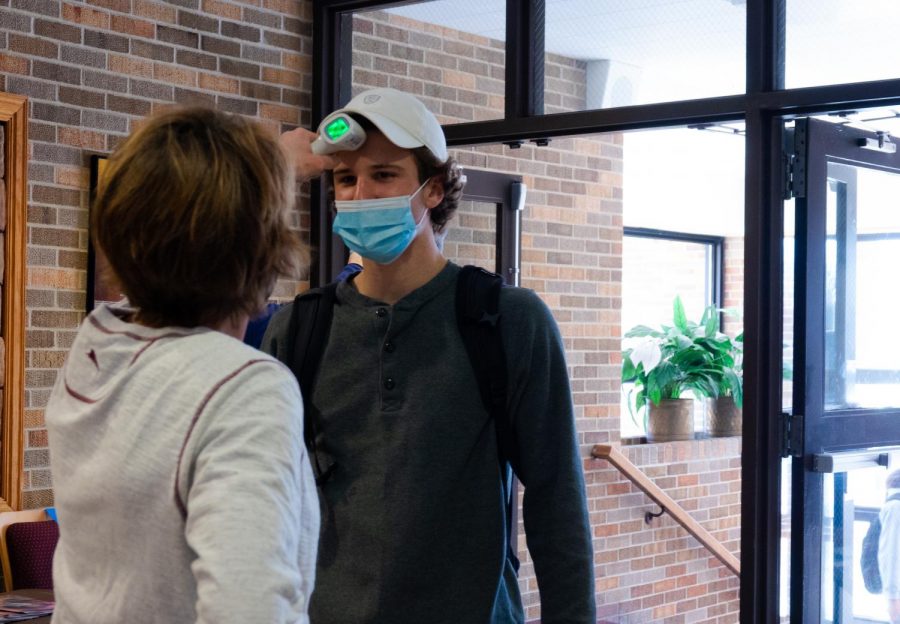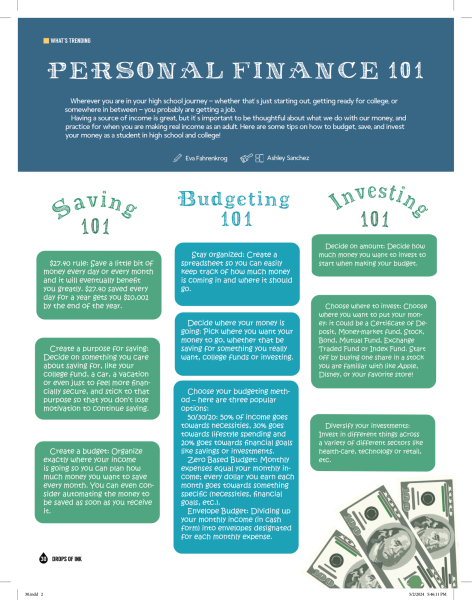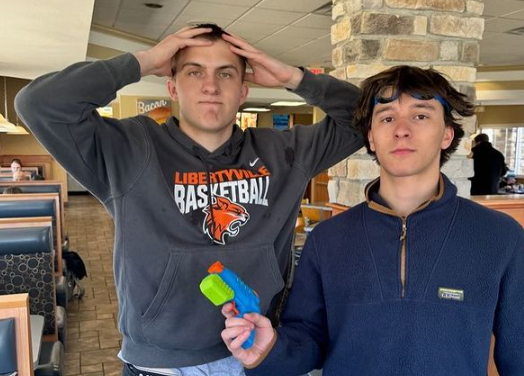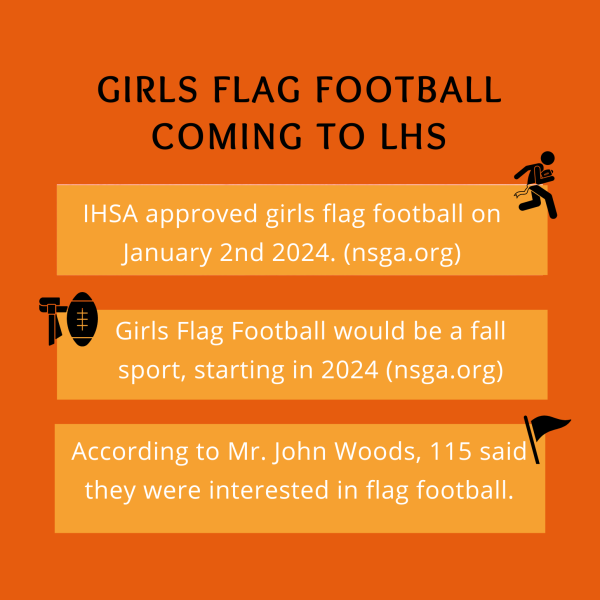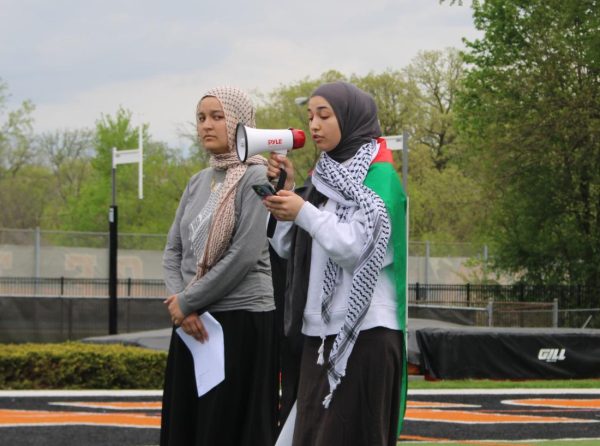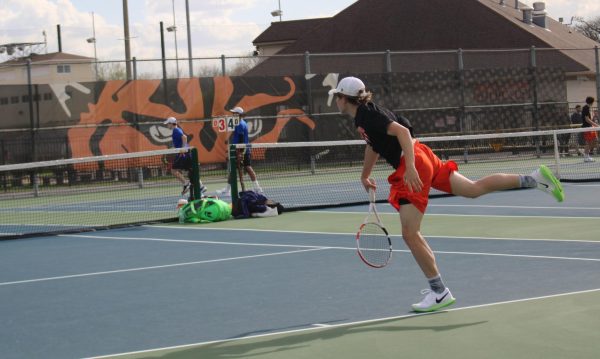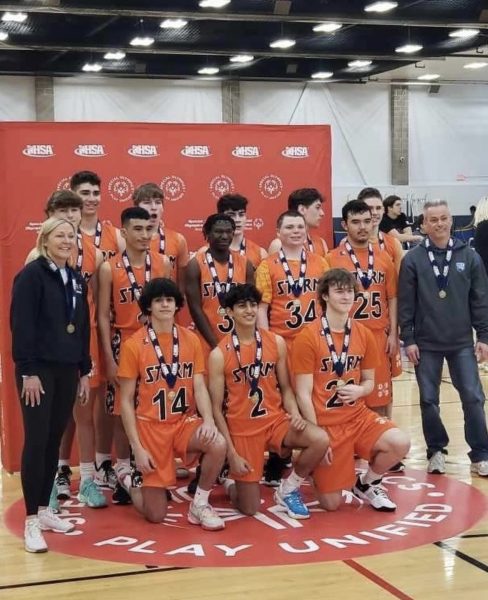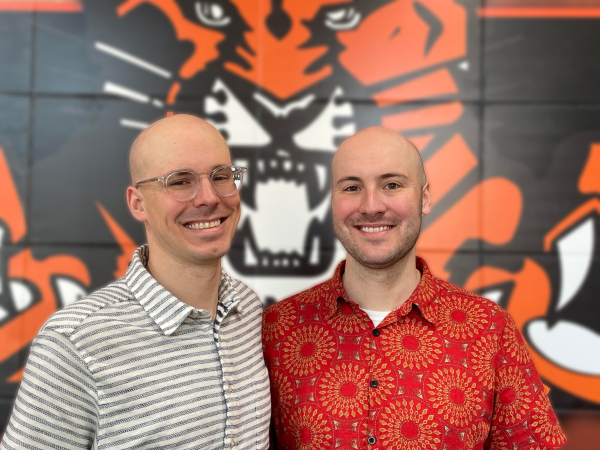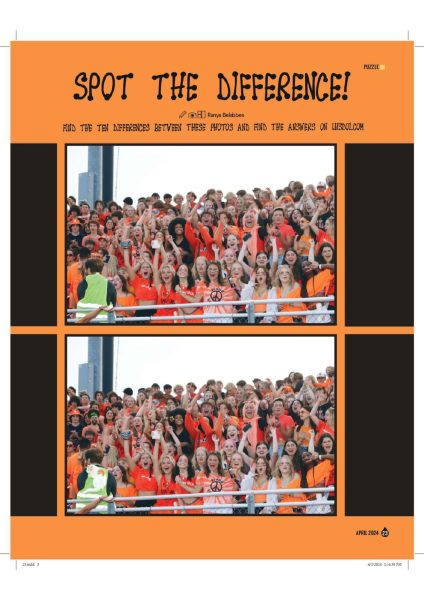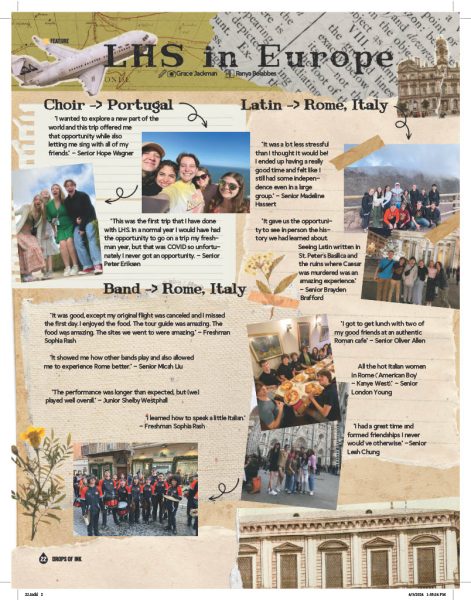One year later
On Wednesday, March 11, 2020, the World Health Organization officially declared Covid-19 a global pandemic. That week, Libertyville first saw everyday life upended by the pandemic, as schools announced a switch to online learning. Drops of Ink interviewed students, teachers and administrators to understand the harrowing first days of the pandemic, one year later.
The first Covid-19 case in the U.S. was found on January 21. Some staff members began to see signs that Covid-19 could pose a threat.
Andrea Lara (U.S. History teacher): We could go back to maybe January. I think maybe the kids in my classroom would remember I started bringing in hand sanitizing wipes. We were taking those sorts of precautions.
Dana Brady (science teacher): I think when there were the first few cases in the U.S. and you started to see them popping up in different parts of the country, I knew something was amiss and that things were going to shift. Did I predict it to this magnitude? No, but I definitely thought there would be a shift.
Christopher Thomas (English teacher and theater director): The idea of closing down all schools in Illinois had not crossed my mind.
Tom Koulentes (principal): I realized [Covid-19] could be a problem for the country, and it could be a problem for public health [before that week]. But it really didn’t quite hit me as a principal to think about it being such a problem for our school until [the week of March 9-13].
John Woods (athletic director): When I heard that my son’s school was going remote and my daughter’s school was going remote, that’s when I started to figure out this thing is happening pretty quickly.
Dr. Koulentes: We were talking about, what if somebody tests positive? How do we make sure they’re safe? How do we make sure they’re taken care of?
Ms. Brady: I actually did [take] a few precautions. I hit the grocery stores, I stocked things in my freezer, I bought a lot of canned foods. I didn’t hoard to where I had like 100 days of worth of food and supplies for me and my family, but I definitely put things into perspective.
On Wednesday, March 11, NBA player Rudy Gobert tested positive for Covid-19. Shortly after, the NBA suspended its season.
Matthew Maderer (then-sophomore): I just remember it being so surreal because we talked about Covid this and Covid that at the beginning of March, but [Gobert’s positive test is] when everyone was getting an idea that this might actually be coming to us.
Mr. Woods: I think it was about 9 [p.m.] when I was on the phone with Dr. Lea (D128 superintendent) and Mr. McDonald (VHHS athletic director) and we’re having conversations about our winter sports awards night that Thursday (March 12). We had to postpone that, and there’s a lot of preparation that goes into that, so the sadness I felt for the kids and for the families was pretty extensive.
At the start of seventh period on Thursday, March 12, Dr. Koulentes announced that all extracurricular activities would be postponed indefinitely.
Jenna Krakowski (then-freshman): I was super bummed because I was really excited to make new friends on the lacrosse team and then we had three practices, and then everything got canceled.
Clara Beauchamp (then-junior): I think when the extracurriculars were canceled, that was definitely when it clicked that things were gonna start being different now.
Mia Khan (then-eighth-grader at Highland Middle School): I was upset [about the cancellation of an orchestra state competition] because we scored well and we worked hard, and now we can’t go.
Ms. Lara: I was in a meeting in my classroom with the Student Council Executive Board, and it’s a very tight group of kids. There was obvious concern amongst the seniors. They were already thinking, ‘Oh my gosh, I’ve lost my soccer season’ or all of that. And I remember at that time thinking, ‘Well, not for sure. It’s spring break. And then we come back and we get back to normal.’
Ms. Brady: I knew [LHS closing] would happen based on information from the past 48 hours and from other schools, but it was just a matter of time.
At 2:40 p.m. on Friday, March 13, Dr. Koulentes made another announcement: school would be conducted remotely until April 6.
Mr. Woods: Dr. K just has such a calming presence. I remember that announcement like it was yesterday. And you sat and listened. And of course, you listened to what you knew he was going to say.
Dr. Koulentes: I wanted to be brave, and I wanted to be steady for students, so that people didn’t panic. And I didn’t want people to be scared. But it’s been said by a lot of people that fear and courage go hand in hand. And I definitely was afraid.
Mr. Thomas: I remember feeling very sad for my students. I know that students come to school for a variety of reasons. There are a lot of good things about our school community that kids love.
Allison Chung (then-freshman): Like everyone else, I was a little excited because I was like, ‘Oh, this is just going to be a few weeks.’
Khan: Honestly, I thought, “Sweet, no school, no schoolwork” when [Highland Middle School] first closed.
Beauchamp: I thought [school closures] would just be for a couple of weeks, like until we got back from spring break. I definitely didn’t think it would be that serious.
Jenna Krakowski (then-freshman): When they announced the e-learning, I was like, ‘This is the new norm? Yeah, it’s gonna be weird.’
In the next few days, Illinois Governor J.B. Pritzker announced a stay-at-home order and Illinois recorded its first Covid-19 death.
Mr. Thomas: Those stay-at-home orders meant that those kids wouldn’t be able to experience the things that they love about school, and about their life. And so I remember feeling very sad for them.
Maderer: I really expected it to be [that] we’ll finish the school year with online learning and we’ll be good to go for next year.
Dr. Koulentes: I definitely had a lot of concerns that there were going to be a lot of people that I cared about who were going to be really sick or maybe die. I guess confusion is a good word. Confused emotions, confused about what are the actions we have to take. I think a lot of that was spinning in my head.
Krakowski: People I know have gotten [Covid-19] and not really had any symptoms, just had to quarantine. But then people’s grandparents got it and passed away. I saw things on the news about people passing away. I was like, “this is way bigger than we think.”
Khan: I saw a lot of videos of people in the hospital beds, dying of this crazy, unknown illness that no one knew anything about, and it was pretty morbid. I saw this video of a 16-year-old girl who had no oxygen in her limbs, and it felt [like], “Wow, that could have been me”.
Beauchamp: As time passed, the cases were increasing a lot more, and I feel like that made [everything] feel a lot more real.
Chung: When they kept saying “Oh, we’re going to be in quarantine for a few more weeks,” that’s when I felt like we probably aren’t going to get out of this anytime soon.
With the one year anniversary of the start of the pandemic, some are taking the time to look back.
Ms. Lara: I don’t think I would change anything. I think the reality of this year played out the way people like me could digest.
Mr. Thomas: When we were in the moment, I believe that everyone was doing their best, not only to keep people safe but also to continue to be positive.
Dr. Koulentes: I don’t really know what it all means. I hope we’ve done a good job. I hope that we’ve kept people safe. But it’s hard sometimes when you’re still living it.



